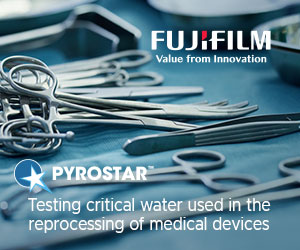ASM Issues Lab Guide...
3M Molecular Detecti...
16th September 2014 Content supplied by: DIATHERIX Laboratories, Inc
Diatherix Enterovirus Group Assay Detects EV-D68
Diatherix has confirmed and successfully validated the detection of the emerging pathogen Enterovirus, EV-D68. The sensitivity of the assay for the EV-D68 strain is as low as 10 plaque forming units per milliliter of respiratory secretions.
The EV-D68 virus produces symptoms of a ‘summer cold’ but may be more intense in certain children. The summer cold is typically caused by a member of the Enterovirus group. The detection rate for the Enterovirus group in children under 18 years old on the Diatherix panels in 2013 was 1404 on 7451 panels (18.8%) and in 2014 it was 3971 on 12973 panels (30.6%).
There are more than 100 types of Enteroviruses that cause about 10 to 15 million infections in the United States each year (CDC MMWR). The Enterovirus group are common inhabitants of the intestinal tract and are often spread to other parts of the body by hand to mouth contact. Diatherix has carefully researched the gene sequences that are used in the assay and have confirmed the ability to reliably detect all of the clinically relevant strains of Enterovirus including EV-D68. Of the more than 100 clinically relevant Enteroviruses that are detected on their panels, included are approximately 28 strains of Coxsackie virus and 29 strains of Echovirus. It is important to note that the panels will not be able to distinguish which Enterovirus is detected in the multiplex test and that the clinician should match the patient’s symptoms with a positive result.
Tags:
Date Published: 16th September 2014
Source article link: View
ASM Issues Lab Guidelines for
3M Molecular Detection Assay Listeria






